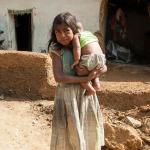Wills Point, Texas – Gospel for Asia (GFA) Special Report Part 2 – Discussing the impact of educational development on the eradication of extreme poverty.
Education’s Holistic Impact on Family Life, Income
God’s creation of the human mind is a marvelous thing. It has the capacity to imagine, dream, create, cherish, remember, deduce, learn and use logic.
When given opportunities through education to learn, cultivate skills and dream, we are capable of accomplishing extraordinary things. To name a few, these include sending human beings into space, discovering medical breakthroughs, crafting new written languages and rebuilding crumbled economies.
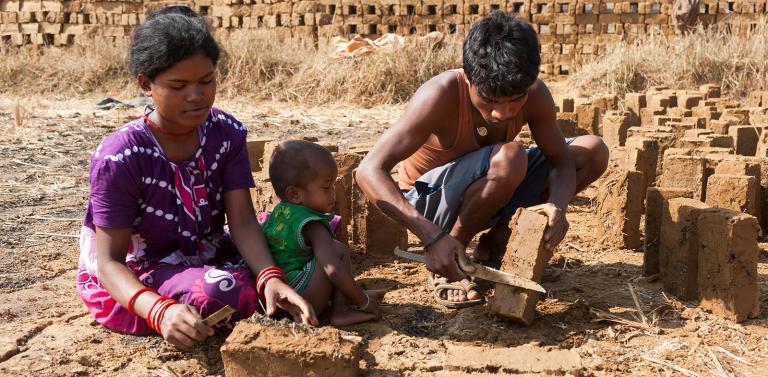
We’ve glimpsed snapshots of what happens when mankind lacks the necessary opportunities to cultivate the amazing mind God has granted him.
What does it look like when people with little or no opportunity to receive an education are at last given that chance?
An article posted by Schools & Health states,
“Education is fundamental to sustainable development, it is a powerful driver of development and one of the strongest instruments for reducing poverty and improving health; it enables people to be more productive, to earn a better living and enjoy a better quality of life, while also contributing to a country’s overall economic growth.”[1]
The impact of education on children, families and entire communities affected by poverty is vast and multi-faceted. Let’s consider just a few of the most prominent outcomes of education.
Education’s Impact on Income
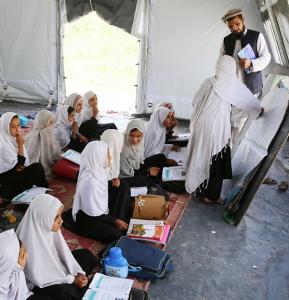
The strong connection between education and income is easy to identify. For every year of primary education received as a child, a worker’s earnings experience a 10 percent increase.[2]
Knowledge of a skill empowers breadwinners to find jobs with better pay and better hours. A literate person in Pakistan earns 23 percent more than an illiterate worker. And in the female workforce, a woman with high literacy skills can earn 95 percent more than an illiterate woman or one who has low literacy skills.[3]
In rural Indonesia, those who finish lower secondary education are twice as likely to escape poverty. In addition, their chances of descending into poverty are reduced by a quarter.[4]
In one study done by an EFA Global Monitoring Report team, findings revealed,
“If all students in low income countries left school with basic reading skills, 171 million people could be lifted out of poverty, which would be equivalent to a 12% cut in world poverty.”[5]
Increased education doesn’t only open new job opportunities for breadwinners; it also enables workers to succeed in their inherited family businesses. Farmers who receive an education are more likely to implement the use of fertilizers and be better equipped to understand the needs of their crops and soil.
Equipped with mathematical skills, a parent can wisely make choices on purchases, contracts and family budgets. And in any business, an increased understanding of finances and mathematics helps guard business owners against being taken advantage of.
Education’s Impact on Health
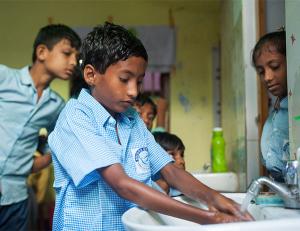
The increase in pay a literate person receives also increases their chance for a healthier life. The extra income buys food for children who might otherwise suffer from malnutrition; it gives the family the option of visiting a doctor for medical treatment—and even better, it enables them to undergo preventative medical care such as regular checkups or vaccinations.
A healthy breadwinner misses fewer days of work than a sickly one, and medical bills demand less from the family budget. But education’s impact on a family’s health extends beyond their improved financial situation.
Education also empowers parents to make wise, healthy choices for their families.
If a mother can read, her child is 50 percent more likely to live past the age of 5.[6] The mother is able to read warning labels and follow those simple instructions intended to protect her family from diseases or accidents.
One of the most common hygiene practices—hand washing—is virtually unknown in some parts of the world. According to UNICEF,
“Rates of handwashing around the world are low. Observed rates of handwashing with soap at critical moments—i.e., before handling food and after using the toilet—range from zero percent to 34 percent.”
As a result, easily avoided illnesses are claiming millions of lives. Every year, diarrhea claims the lives of more than 1.5 million children under the age of 5; proper handwashing practices can reduce diarrhea by more than 40 percent.[8]
A person’s health impacts their education as well: A study among primary schools in China with active hand-washing promotions and distributions of soap identified that students missed 54 percent fewer days of school compared to students whose schools had no such program.[9]
Education Development and It’s Impact on Society
There is power in education. “No country can really develop unless its citizens are educated,” said Nelson Mandela.[10]
Literacy is also key to being informed about what is taking place around the world. It builds global awareness into a person’s heart and enables them to engage with others in ways that are impossible without literacy.
The UN states that “quality early education provides children with basic cognitive and language skills and fosters emotional development.”[11] Alternatively, an estimated US$129 billion is lost each year due to the 250 million children globally who are not learning basic skills (and thus have less potential).[12] The importance of quality education on society is revealed by its inclusion in the UN’s global Sustainable Development Goals.[13]
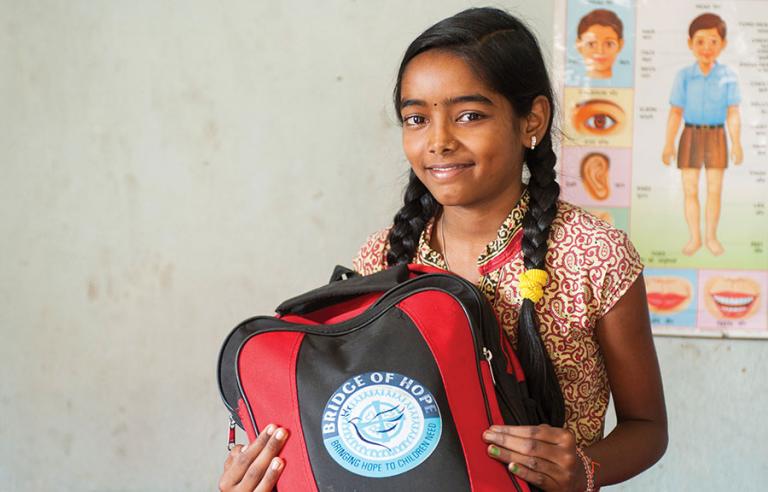
Beyond influencing the economy of a society, education also touches the fibers of morals and lifestyles in a region.
According to Professor W. Steven Barnett, author of Preschool Education and Its Lasting Effects: Research and Policy Implications, a child’s academic success can be impacted by early childhood education, which can also reduce incidences of crime and delinquency.[14]
Do you remember the joy you felt as a child when you did something well in school? The sense of accomplishment and the praise from a teacher or parent give courage and confidence to approach other challenges in life. In the same way, the shame felt when encountering failure can hinder children in life. If a child grows up with a constant sense of failure and insufficiency, that can result in low self-esteem and lack of confidence.
Training children at an early age to pursue their goals and giving them the tools they need to succeed prepare them to thrive in the future challenges they will face as adults.
Solutions to Poverty Line Problems of the Poor & Impoverished: Part 1 | Part 3
This Special Report article originally appeared on gfa.org
Click here, to read more blogs on Patheos from Gospel for Asia.
Go here to know more about Gospel for Asia: Youtube | Twitter | GFA Reports | My GFA | Instagram
- [1] Schools & Health. The Impact of Education. June 2018.
- [2] Pencils of Promise. The Issue. June 2018.
- [3] UNESCO. Teaching and Learning: Achieving quality for all. EFA Global Monitoring Report. 2014.
- [4] UNESCO. Teaching and Learning: Achieving quality for all. EFA Global Monitoring Report. 2014.
- [5] UNESCO. Teaching and Learning: Achieving quality for all. EFA Global Monitoring Report. 2014.
- [6] Borgen Magazine. The Positive Effects of Education. August 11, 2014.
- [7] GFA. Learning How to Save Her Baby. November 2016.
- [8] UNICEF India. Fast Facts and Figures About Handwashing. June 2018.
- [9] UNICEF India. Fast Facts and Figures About Handwashing. June 2018.
- [10] Pencils of Promise. The Issue. June 2018.
- [11] UN Department of Economic and Social Affairs. Sustainable Development Goal 4. June 2018.
- [12] Pencils of Promise. The Issue. June 2018.
- [13] UN. Sustainable Development Goals. June 2018.
- [14] Livestrong. How Education Affects Early Childhood Development. June 13, 2017.
- [15] Livestrong. How Education Affects Early Childhood Development. June 13, 2017.



